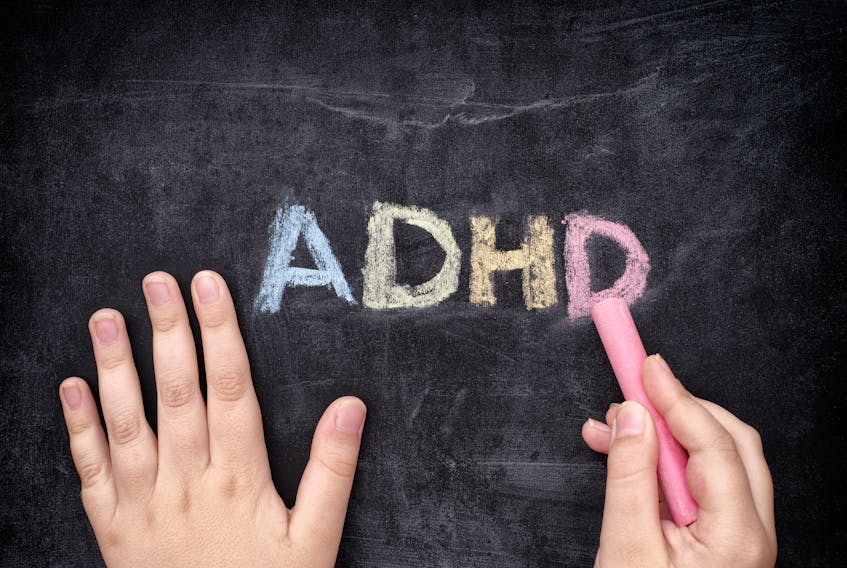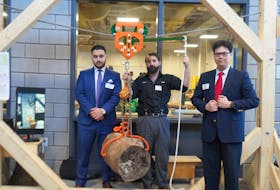SUMMERSIDE, P.E.I. — I had a difficult childhood. I was hyperactive, and didn’t like school; I was a class clown. In Grade 3, I was diagnosed with attention deficit hyperactivity disorder (ADHD), and was given Ritalin pills. I felt like a zombie, although I was able to pay better attention in class, and my marks got better. I still hated school, and stopped the pills when I was in high school. I barely graduated, and got into drugs. With the help of my wife, I finally stopped using drugs, and now I'm doing quite well with a good-paying job. It wasn’t an easy journey. Now, I see the same problem in our eight-year-old son. His teacher told us that he distracts his classmates. When we try to teach him at home during the pandemic, it is almost impossible. We feel that he likely has ADHD like me; we are terrified of the idea of giving him medicine. Are medications safer nowadays for children with ADHD?
Answer:
Yes, medications for ADHD are a lot safer for children and adults with this condition. Understanding and treatment of ADHD have improved in the last few decades. When you were young, the most common medications were short-acting Ritalin and Dexedrine pills. There are Ritalin SR (slow release) pills and Dexedrine capsules that work slightly longer, but not much better.

Research in 1990s by the Institute of Mental Health in the United States showed that ADHD children given carefully adjusted short-acting Ritalin pills two to three times a day had improved attention, learning and interaction with family and peers. However, very few families could maintain multiple doses of Ritalin for a long time.
As a result, researchers looked at ways to produce long-acting medications, which not only improve compliance, but also reduce the ups and downs of medication levels in the body. As a result, we now have medications that can be taken mostly once a day, usually in the morning, and can last well into the evening.
For Ritalin-based medicine, we have Biphentin and Concerta that work during school hours and early evenings, so that students can complete their homework. More recently, Foquest capsules can work for 12-14 hours, useful for university students and adults to sustain attention even longer.
For Dexedrine-based medicine, there is Adderall XR that works until early evening, and Vyvanse that can work even longer. With careful adjustment, these medications can provide great benefit, and may not affect sleep.
The important thing is to find a medicine that fits the person. ADHD medications not only improve a person’s ability to pay attention and reduce distraction on important tasks, they can improve organization and motivation to do things that may be tedious or boring.
Side effects are often mild. Appetite can be reduced during lunch time, but will return later in the afternoon. Some may lose a bit of weight, but they continue to grow. It is very rare that we have to stop medicine for this reason.
If a child has more significant side-effects from Ritalin-based medicine, the doctor can try Dexedrine-based medicine, and vice versa. The important thing is to find a medicine that works best for the child. In my many years of work with children and adults, there were very few times that we couldn’t find one that works well. Sometimes it takes a few changes of medications. The key is to start with a low dose of medicine so that the brain can adjust, and then increase gradually.
Researchers have also discovered non-stimulant medications that can be added to Ritalin- or Dexedrine-based medications, to help them work better and longer. These include Strattera, Intuniv XR and Wellbutrin XL or SR.
Managing children and adults with ADHD takes time and patience. It is most important to optimize treatment: if the medicine causes significant side-effect, it is likely not the right fit. Try another medicine at a low dose to see whether it is a better fit, and then adjust the dose carefully. This takes co-operation between parents (or patients) and their doctors. It is not just about paying attention, it is to help the child succeed in school, get along with family at home, and with peers.
Dr. David Wong is a retired paediatrician in Summerside and recipient of 2012 Distinguished Community Paediatrician Award of Canadian Paediatric Society. His columns will appear in the Guardian on the last Tuesday of every month. You can see a collection of his previous columns at www.askdrwong.ca. If you have a question for Dr Wong, please mail it to Prince County Hospital, 65 Roy Boates Ave, Summerside, PE C1N2A9.









